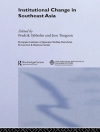‘New Directions offers the best graduate/professional level introduction to the field of interpersonal communication currently available. It is compact, accessible, and authoritative.’
—Mac Parks, Journal of Communication
Presenting today′s cutting-edge interpersonal communication research and reflecting on the changes that have occurred over the past three decades, New Directions in Interpersonal Communication Research is relevant and useful to a broad audience, from advanced undergraduate students to the most experienced researchers in the area. By telling the ‘stories’ of research, this volume′s contributors avoid the dry, encyclopedic style that is typical of chapters in handbooks. This new collection showcases the vital, collaborative, and interdisciplinary interpersonal communication research that is being conducted today. Editors Sandi W. Smith and Steven R. Wilson bring together a combination of established and newer scholars, as well as ‘boundary spanners’—those who are applying interpersonal theories and concepts to areas such as family, health, intercultural, organizational, and mediated communication—to illustrate the wealth and breadth of this area of study and research. Each chapter has clear applied value with an emphasis on doing theoretically driven work that has implications for social issues and problems.
Key Features
- Offers a broad overview of interpersonal communication as an area of study, situating it historically, discussing advances in theory as well as application, and including a broad range of metatheoretical perspectives
- Traces evolving trends during the past 30 years that have shaped the study of interpersonal communication and continue to make it relevant, including issues about the larger society (such as globalization and technology), about the communication discipline (such as fractionalization), and about interpersonal communication in particular (such as a focus on ‘darker’ topics)
- Includes topics that range from evolutionary and dialectical perspectives on interpersonal communication, to uncertainty and turbulence in interpersonal relationships, to comforting and destructive patterns of communication
- Illustrates how interpersonal communication research can be applied to such diverse topics as information management and privacy, family adaptation to medical diagnoses, and how writing blogs affects self-esteem
- Tells the background stories of contributors′ research programs, including why the topic matters, what they found, where their work is going, and lessons learned
New Directions in Interpersonal Communication Research is intended as a core text for graduate and upper-level undergraduate courses in Interpersonal Communication, Relational Communication, and Communication Theory.
Table des matières
Foreword: Commentary on New Directions in Interpersonal Communication – Michael E. Roloff
1. Evolving Trends in Interpersonal Communication Research – Sandi W. Smith and Steven R. Wilson
PART I. METATHEORETICAL APPROACHES TO INTERPERSONAL COMMUNICATION RESEARCH
2. Evolutionary Perspectives on Interpersonal Relationships – Ascan F. Koerner and Kory Floyd
3. Relational Dialectics Theory, Applied – Leslie A. Baxter and Dawn O. Braithwaite
PART II. BASIC INTERPERSONAL PROCESSES
4. Relational Uncertainty and Interpersonal Communication – Leanne K. Knobloch
5. Uncertainty and Information Management in Interpersonal Contexts – Walid A. Afifi
6. Turbulence in Relational Transitions – Denise Haunani Solomon, Kirsten M. Weber, and Keli Ryan Steuber
7. Workplace Relationships and Membership Negotiation – Karen K. Myers
PART III. THE LIGHT AND DARK SIDES OF INTERPERSONAL COMMUNICATION
8. Explaining Recipient Responses to Supportive Messages: Development and Tests of a Dual-Process Theory – Brant R. Burleson
9. Toward a Communication Theory of the Demand/Withdraw Pattern of Interaction in Interpersonal Relationships – John P. Caughlin and Allison M. Scott
10. Advances in Deception Detection – Judee K. Burgoon and Timothy R. Levine
11. Hurtful Communication: Current Research and Future Directions – Anita L. Vangelisti and Alexa D. Hampel
PART IV. RELATIONSHIPS, MEDIA, AND CULTURE
12. Culture and Interpersonal Relationships – Kristine L. Fitch
13. New Technologies and New Directions in Online Relating – Joseph B. Walther and Artemio Ramirez, Jr.
14. Interpersonal Relationships on Television: A Look at Three Key Attributes – Stacy L. Smith and Amy Granados
A propos de l’auteur
Steven R. Wilson (Ph.D., Purdue University) is Professor in the Department of Communication at Purdue University. He also has been a faculty member at Michigan State, Northern Illinois, and Northwestern Universities. His research and teaching focus on interpersonal communication, social influence, and aggression/conflict. He is the author of Seeking and Resisting Compliance: Why Individuals Say What They Do When Trying to Influence Others (Sage, 2002), for which he received the Gerald R. Miller book award from the National Communication Association’s interpersonal communication division in 2005. He also has published more than 50 articles and chapters in communication journals such as Communication Monographs, Communication Research, and Human Communication Research, interdisciplinary journals such as Child Abuse & Neglect, Journal of Social and Personal Relationships, and Journal of Language and Social Psychology, and edited volumes such as the Handbook of Communication and Social Interaction Skills and the Handbook of Communication Science (2nd ed.). His recent research explores patterns of parent-child interaction in families at risk for child maltreatment as well as patterns associated with children’s school readiness (funded by the Lilly Endowment). He is active in both the National Communication Association and the International Communication Association, and has served as chair of the interpersonal communication division for both associations. From 2001-2003, he served as one of five associate editors of the interdisciplinary journal Personal Relationships. In 2008, he was honored with the Bernard Brommel Award for Outstanding Scholarship or Distinguished Service in Family Communication from NCA.












